Clashes Reported Between Iranian, Taliban Forces At Border
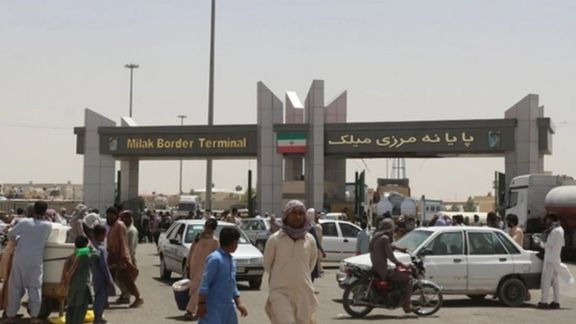
Clashes were reported on Sunday between the border guards of Iran and the Taliban in the Hirmand border region.

Clashes were reported on Sunday between the border guards of Iran and the Taliban in the Hirmand border region.
According to reports, the skirmish is still ongoing in the Shaghalak village in Doust Mohammad Rural District in central Hirmand in Sistan and Baluchestan province. It is not clear what prompted the incident.
Confirming the reports, Meysam Barazandeh, the governor of the border town said that there is no immediate estimate of the number of casualties.
Unconfirmed reports in social media say at least 10 people were killed during the firefight. Some social media users say most of the casualties are members of the Baluchi ethnicity, a minority people living in Iran’s south-east bordering Pakistan and Afghanistan.
Late in June, at least one Iranian soldier was killed during clashes in the same area. Iran’s foreign ministry spokesman Naser Kanaani identified the victim as Mohammad Sayyad, saying that he died in line of duty by unknown gunmen at the Milak border crossing and urged the Taliban to punish those behind the incident.
In April, the border crossing Dogharoon was temporarily shut down following a “dispute” between Iranian and Afghan border guards.
There have been some incidents at the border since the Taliban seized control of Afghanistan last year. An Iranian foreign ministry official in January said that the reason for clashes between Iranian forces and the Taliban was lack of professional conduct by the latter.
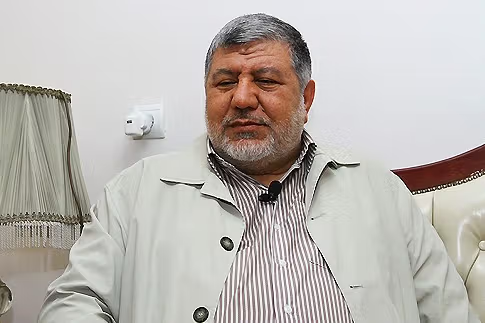
One of the bodyguards of the founder of the Islamic Republic Ruhollah Khomeini claimed on Saturday that the former Supreme Leader was assassinated by poisoning.
Hamidreza Naghashian (Naqqashian) said in an interview that Khomeini was admitted to hospital with a heart problem, but later it was found that his stomach had upper gastrointestinal bleeding.
Naghashian claimed that medications to treat Khomeini were bought through several connections from a pharmacy in London, which had not existed before and was only established for providing Khomeini’s drugs and immediately shut down afterwards.
He did not elaborate on who had prescribed the medicines and who had provided them, but said the intelligence ministry has the script of the buyers’ interrogation, adding that former president Akbar Hashemi Rafsanjani did not allow the ministry to follow up the case.
The former bodyguard also called on the authorities to increase measures to protect the current Supreme Leader Ali Khamenei because of the suspected infiltration in his office.
Since mid-2020 a series of high-profile mysterious attacks have hit Iran’s nuclear and military installations around the country, widely believed to have been Israeli sabotage operations.
In May, several IRGC officials were killed or died in suspicious circumstances, prompting Tehran to blame Israel -- which has never officially taken credit for these operations – and a major reshuffling of IRGC intelligence and counter-intelligence leadership in the following month.

Iran’s Intelligence Ministry said on Saturday it has arrested a Swedish citizen in Iran on charges of espionage.
In a statement, the ministry said the Swedish national, whose identity remains unknown, had contact with "European and non-European suspects" in Iran.
It claimed that the detained Swede had made several trips to Iran and visited different cities which are not typical tourist destinations.
The ministry alleged that in all his/her trips, the arrested person had communicated with "European and non-European suspects who were under surveillance in Iran" and observed all “professional principles of communication, protection and concealment". It said the Swedish person had also travelled to Israel before visiting Iran.
The arrest was announced as Iran has “strongly condemned” a Swedish court’s sentencing of former Iranian jailor Hamid Nouri to life imprisonment over executions of political prisoners in 1988.
Late in June, the Swedish Ministry of Foreign Affairs advised its citizens against traveling to the Islamic Republic due to security risks to foreigners.
Tehran is already holding hostage Iranian-Swedish academic Ahmadreza Djalali, who is on death row.
Iran has been accused of wrongfully detaining foreign and dual nationals on trumped up charges, effectively as hostages to extract concessions from Western governments.
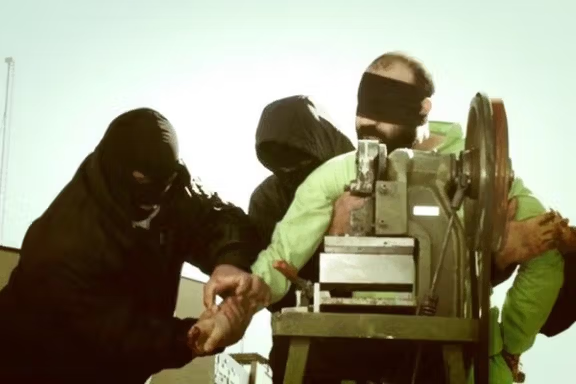
Human rights group Amnesty International says Iranian authorities must be held accountable for amputating the fingers of two prisoners.
Confirming the report of the amputations, the rights watchdog said on Friday that Iranian authorities used a guillotine machine to cut off the fingers of a man convicted of theft on July 27.
“Pouya Torabi, who is in his late thirties, was transferred on an emergency basis to a hospital immediately after his fingers were cut off in the presence of several officials and a doctor at Tehran’s Evin prison,” Amnesty said in a statement.
It claimed that less than two months ago, on May 31, Iranian authorities also amputated the fingers of Sayed Barat Hosseini, without giving him anesthetic, adding that he has since been imprisoned in isolation in Evin prison and denied adequate mental and physical health care for infections and trauma suffered after the amputation.
“These amputations are particularly harrowing displays of the Iranian authorities’ contempt for human rights and dignity. Amputation is judicially-sanctioned torture and, therefore, a crime under international law, and all those who were involved in ordering or implementing these corporal punishments should be prosecuted in fair trials,” said Diana Eltahawy, the group's Deputy Director for the Middle East and North Africa.
According to Islamic Sharia law, punishment for theft can be amputation of fingers or hands.
Iran’s judicial system is repeatedly criticized for ignoring standard human rights while right groups say the country has embarked on an execution spree at a “horrifying pace” with at least 251 deaths since the beginning of 2022.
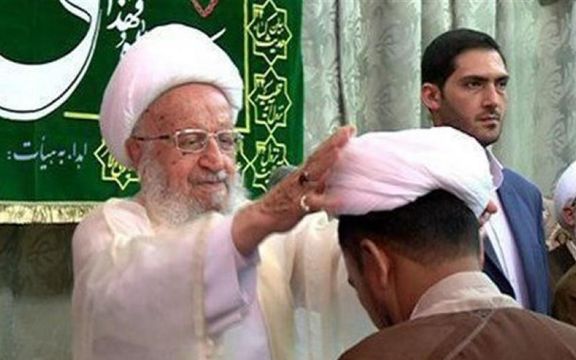
The former dean of Iranian Shiite seminaries abroad says clerics’ popularity has sharply declined as they have lost touch with the people and their priorities.
During recent years as protest demonstrations swept across Iran one of the resounding slogans in demonstrations was "Akhund [Shiite clerics] should get lost!" This is not just a reflection of Iranians’ dissatisfaction with clerical rule, but it also is a reaction to many clerics' religious intolerance of many people's preferred lifestyle, including the way they dress and mingle with the opposite sex.
The former official, Mohammad Reza Nourollahi told Aftab News website: “There are indications that a deep and irreparable divide has appeared between the people and Iranian clerics.” He added that clerics as “the guardians of the people’s ideological life have effectively damaged their own relationship with the people.”
He explained that the people expect clerics to take clear positions about developments in the country. But clerics linked to the government usually keep silent in the face of harsh treatment of the people by government officers, inequality and wrong decisions of government officials.
Referring to recent developments in which clerics supported violence by security forces against women objecting to compulsory hijab, Nourollahian said: “Unfortunately, many Friday prayers imams made meaningless statements about these developments. But Shiite clerics should stand against wrongdoing and deviation, like their predecessors did.”
He said in the past Shiite clerics used to meet people at their homes and maintain good relations with them. They listened to the people’s demands and grievances, but the situation has changed today, and the damage caused to this relationship can be hardly compensated.”
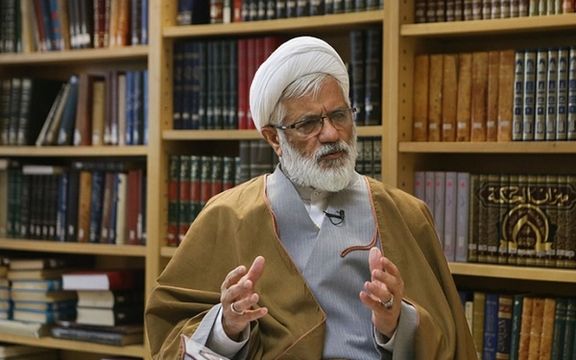
Nourollahian warned: “Sooner or later, something terrible is going to happen to many seminaries because people no longer see the clerics as their supporters.”
In recent months government-controlled media has admitted that there is popular resentment against the clergy but as it is characteristic of media in Iran, they blamed foreign countries and their agents rather than clerics' own behavior for the rift.
The Qom Seminary's own news agency, Hawza News, on May 22 quoted senior seminarian Massoud Mohammadi as saying that "The enemies are trying to divide the clerics from the people." He added, "The enemy's propaganda targets the clerics' popularity," however, he did not elaborate on the nature of the propaganda and failed to offer any indication of the clerics' popularity in Iran.
Meanwhile, after many government critics, including some lawmakers, spoke out about the decline of clerics' popularity following protest demonstrations in December 2021, Iranian academic, Ayatollah Mostafa Mohaqeq-Damad, told Mashregh News website that "What can make clerics popular again is their separation from politics."
Mohaqeq-Damad, one of Iran's most prominent apolitical clerics was probably referring to the fact that the presence of the clerics in various government posts has made them targets of resentment as the current economic crisis has worsened in recent months.
Ensaf News webste also quoted cleric Ahmad Heidari as saying: "As the clergy have a lot of power, they will be considered responsible for anything good or bad in the government's performance. Now that the government has partly failed in running the affairs of the state, naturally the people will be unkind toward the clerics. Some may even hate them."
Last week, Iran's Supreme Leader Ali Khamenei warned Shiite clerics against running businesses and luxurious lifestyles. "Avoid economic activities!" he said.
Nourollahian also said in his interview with Aftab News: "Once people used to sit and listen to clerics in the atmosphere of spirituality. We hurt the people so badly that they no longer experience that."
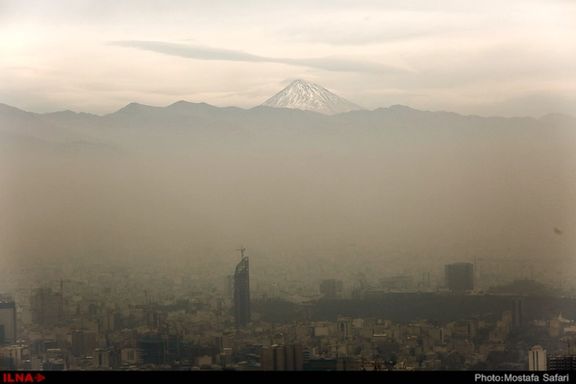
Iran was among the few countries that abstained from a vote on a resolution in the United Nations General Assembly that declared everyone on the planet has a right to a healthy environment.
In a resolution passed Thursday morning at UN headquarters in New York City, the General Assembly described climate change and environmental degradation as some of the most pressing threats to humanity’s future, calling on states to step up efforts to ensure their people have access to a “clean, healthy and sustainable environment.”
Some 161 countries voted for the resolution and only eight countries abstained, including Iran, Russia, and China.
“This resolution sends a message that nobody can take nature, clean air and water, or a stable climate away from us – at least, not without a fight,” said Inger Andersen, the executive director of the UN Environment Program (UNEP).
The move followed a similar vote by the UN Human Rights Council that declared in April that access to a “clean, healthy and sustainable environment” is a human right.
Earlier in July, sandstorms and dangerously polluted air led to the closure of schools and some government offices in Iran’s capital Tehran as well as several other cities across the country.
Tehran was logged as the most polluted city in the world in April with air quality hazardous and visibility very low largely due to the very high level of airborne particles. The capital’s pollution is mainly blamed on poor government policies, desertification and low water levels, as well as climate change that has intensified sandstorms.
Moreover, the usage of highly polluting diesel and mazut fuels in power plants jumped in Iran in 2021 on top of increases in previous years.